Special Report
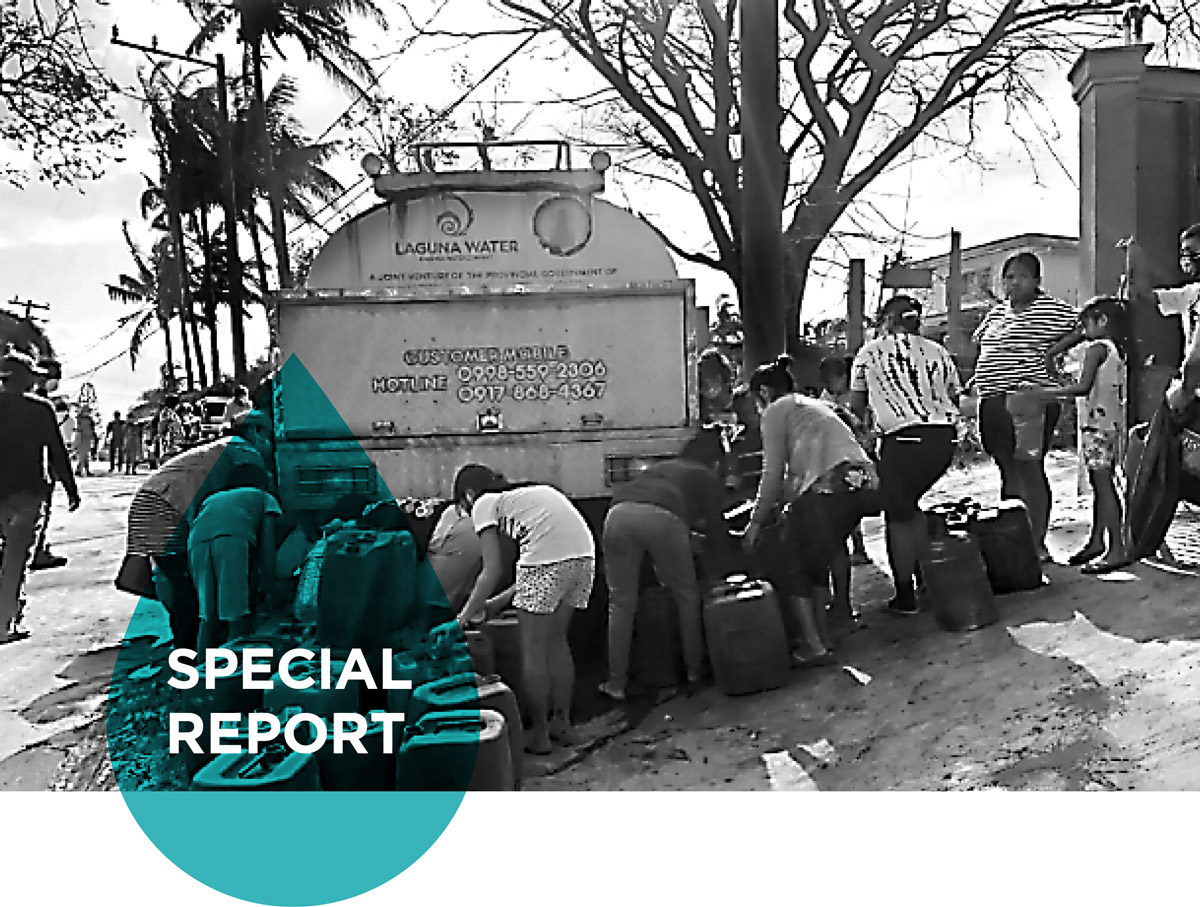
On January 12, 2020, after over 40 years of dormancy, the Taal Volcano erupted. Ashfall resulting from the eruption affected several regions in the island of Luzon, specifically CALABARZON1, Metro Manila and portions of Central Luzon and the Ilocos Region. Situated in the middle of the Taal Lake in the province of Batangas, the volcanic eruption severely affected the shore town of Talisay and San Nicolas, as well as communities surrounding the lake. Highly affected are the areas within the CALABARZON region, distressing at least 400,0002 people (over 100,000 families) within the radius of the danger zone. Manila Water Philippine Ventures’ subsidiaries, Laguna AAAWater Corp (Laguna Water) and MWPV South Luzon Water Corp. (South Luzon Water), as well as its employees were caught within the highly affected areas of the eruption. Over 140 Laguna Water employees were affected by the ashfall while 35 employees from South Luzon Water were displaced.
1 CALABARZON Regions covers the provinces of Cavite, Laguna, Batangas, Rizal and Quezon
2 https://www.unocha.org/story/philippines-taal-volcano-eruptionforces-thousands-evacuations
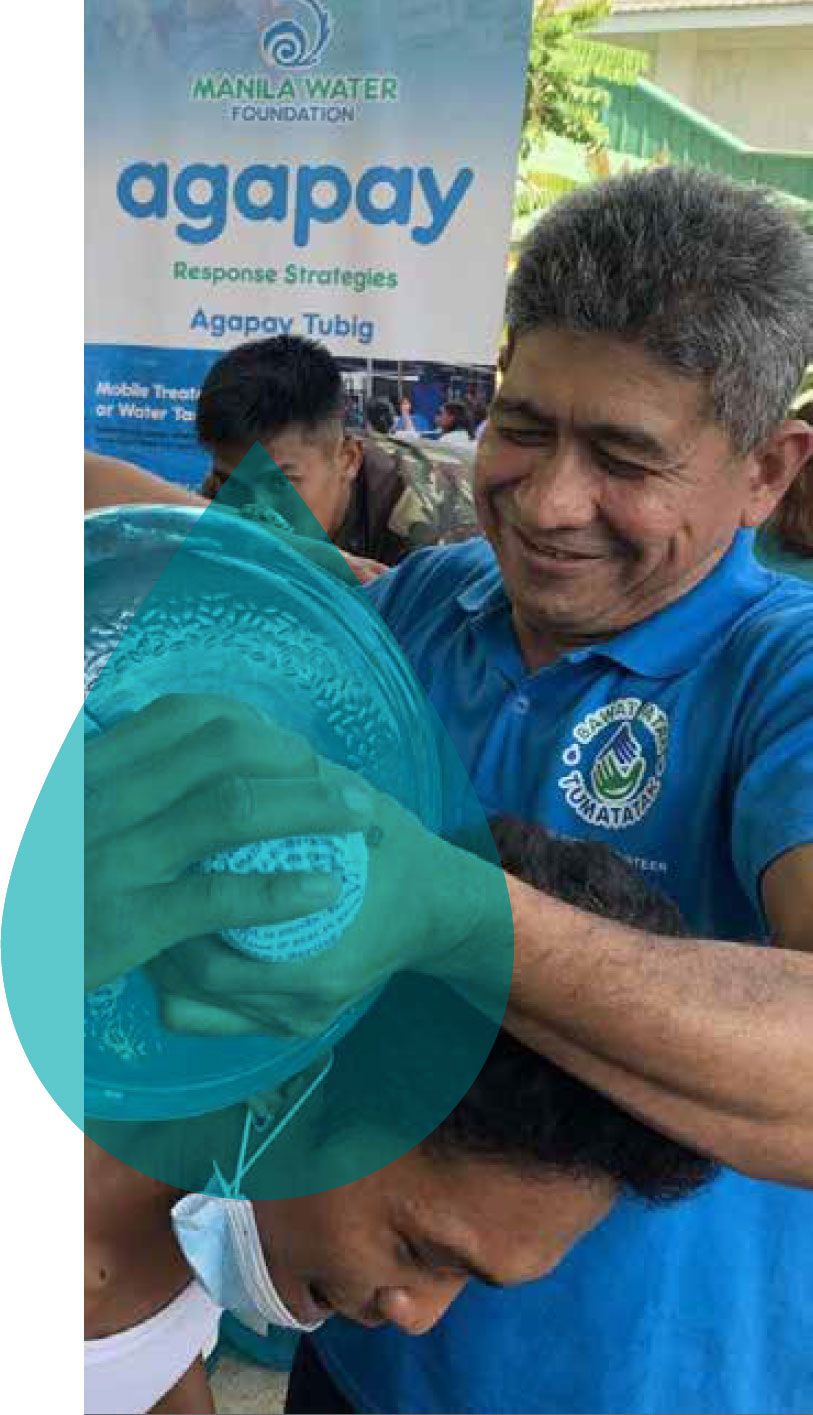
Despite the impact of the eruption to the families of employees from Laguna Water and South Luzon Water, the teams jointly exerted efforts to continue providing service, while extending help to those who have been displaced by the eruption. Both companies were grounded by three main objectives, (1) safeguarding employees’ well-being; (2) ensuring business continuity; and (3) creating ripples of change through community help.
Safeguarding Employee Well-Being
Manila Water prides itself in ensuring employee safety and well-being amidst calamities and adversities. Upon the eruption of the Taal Volcano, Laguna Water and South Luzon Water, as well as Manila Water’s Parent Company activated its Call Tree, accounting for the condition of all employees. Vehicle services were immediately deployed, transporting affected employees in need of evacuation. The companies also distributed N95 masks and regularly used a gas tester to check the air level/content within the office premises of Laguna Water, recognizing the adverse effects of inhaling volcanic particles from the ashfall. Furthermore, with damages to homes a reality affected employees faced, the Company also provided advances to employee bonuses. Financial assistance was likewise provided to 59 employees from Laguna Water and South Luzon Water, courtesy of Ayala Multi-Purpose Cooperative.
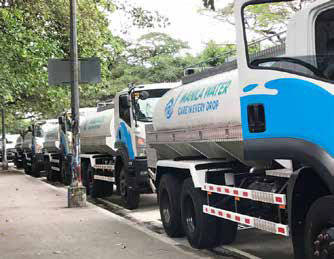
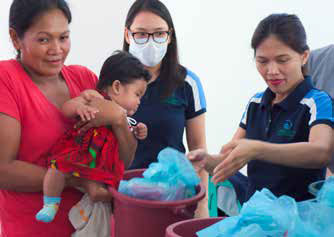
Furthermore, part of safeguarding employee well-being is the conduct of stress debriefing to those who were affected. Registered psychologists were employed with the objective of relieving stress and maintaining the motivation of employees in a more stable workplace while ensuring business continuity amidst the Taal Volcano eruption.
Ensuring Business Continuity
The accumulated dirt and mud from the ashfall required intensive cleaning on the part of Laguna Water and South Luzon Water customers which led to an increased demand for water. Ensuring water supply was an imperative as clean-up activities and tankering services were implemented in affected areas. Power outage was likewise common, affecting 23 facilities.
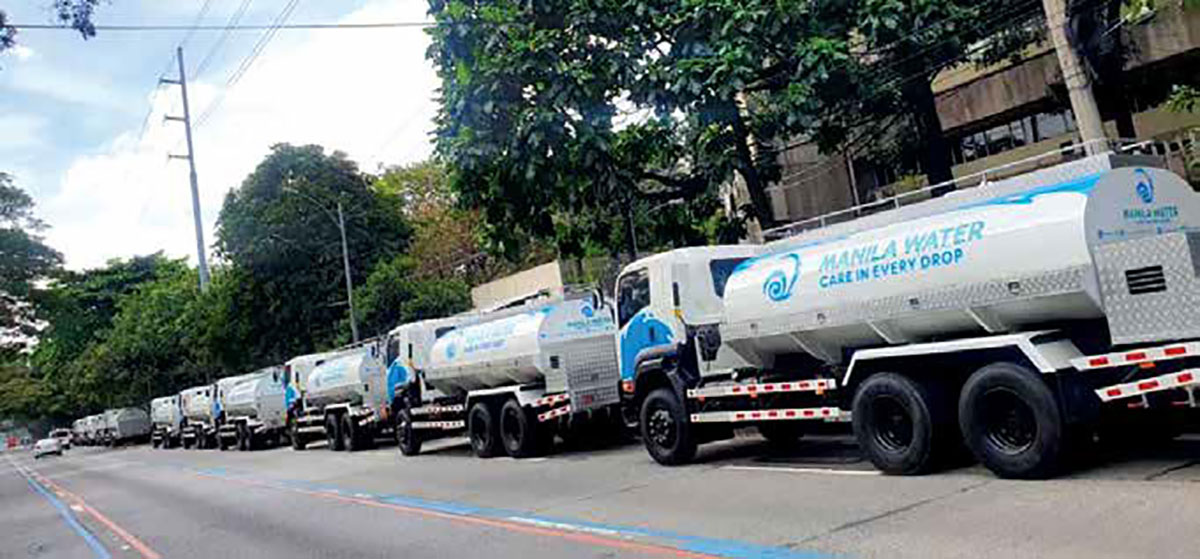
Service interruptions were averted with the usage of standby/mobile generator sets. These were immediately energized as soon as power fluctuations happened. Although five facilities shut down during the eruption, this was immediately addressed through augmenting supply from other online facilities. Outside the affected barangays within South Luzon Water’s service area, the Company ensured 100 percent facility operations.
Wastewater services were also under normal operations amidst the eruption, maintaining target flows and effluent quality standards. Laguna Water also initiated a more active monitoring and checking of water quality in its water source and facilities to ensure safe and potable water for the customers. All parameters tested, including turbidity, were well within the Philippine National Standards for Drinking Water standards, indicating safe for human consumption. Finally, the Cabuyao office, which is situated outside the danger zone was utilized as an alternative workplace for employees.
Tanker Trips
Volunteers Across Manila Water Enterprise
Barangays in 7 Municipalities Reached
Cubic Meters of Water Provided
Families Benefitted
Creating Ripples of Care
Part of Manila Water’s DNA is its inherent genuine concern for affected communities. In spite of the ongoing adjustments in business operations, Laguna Water and South Luzon Water simultaneously initiated its support to the affected communities. As an immediate response, Manila Water and Laguna Water deployed 30 tankers, providing potable water to areas with water supply interruptions even beyond its concession area. Static tanks were installed to evacuation centers in Batangas. Manila Water was relentless, despite the danger of the eruption, motivated by its sense of sincere concern to the communities. Laguna Water was also involved in relief operations for affected families in Sta. Rosa. Feeding programs were likewise extended to various evacuation sites.